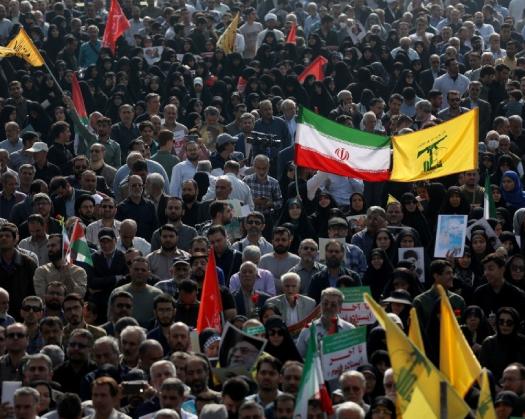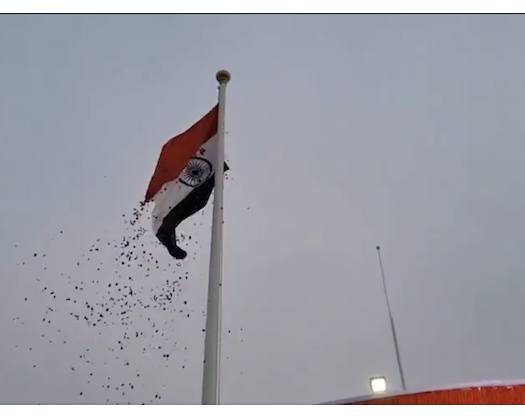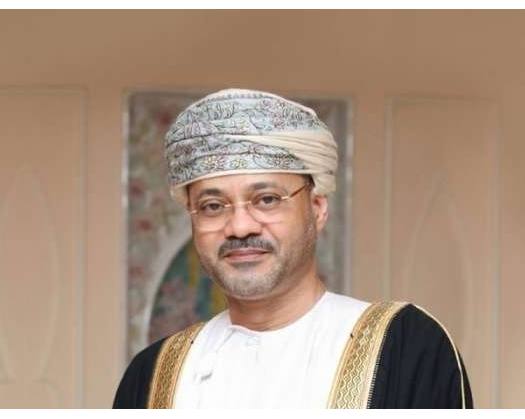DUBAI/BEIRUT: The Commander of Iran's distinguished Revolutionary Guards issued a stern warning to Israel on Thursday, cautioning against retaliatory strikes following a missile onslaught, as its longstanding adversary, Hezbollah, escalated its offensive in Lebanon, which is backed by Tehran.
Concerns regarding the escalation of conflict across the Middle East have intensified as Israel contemplates its response to the missile strike on October 1, which was launched by Iran in retaliation for Israeli military actions against Iranian-aligned factions. "We communicate to Israel that any aggressive measures taken against us will be met with a retaliatory force of equal magnitude," stated Hossein Salami during a televised address, further asserting Iran's capability to breach Israel's defensive lines.
In a meeting on Wednesday, U.S. Defense Secretary Lloyd Austin engaged in discussions with Israeli Defense Minister Yoav Gallant regarding Israel's military operations in Lebanon and Gaza, with the objective of preventing a broader regional conflict. Meanwhile, Iran's Foreign Minister Abbas Araqchi arrived in Cairo for consultations with Egyptian officials as part of his Middle Eastern diplomatic tour, amidst rising tensions. The European Union convened its inaugural summit with Gulf nations, issuing a statement advocating for peace, emphasizing the importance of diplomatic dialogue with Iran to foster regional de-escalation.
Israel has maintained its military campaigns against Hezbollah in Lebanon, following the assassination of several of its leaders, and has pledged to retaliate against Iran for the missile strike. Qatar, which has played a mediating role in efforts to secure a ceasefire in Gaza, reported a lack of recent engagement with all parties involved in the peace talks on the matter. Israeli airstrikes resulted in the death of 11 Palestinians in Gaza City on Thursday, according to medical personnel, while Israeli forces advanced into Jabalia, a northern Israeli-occupied area, where the presence of Palestinians and United Nations representatives raised concerns over the scarcity of food and medical supplies.
In Lebanon, Israel has declared its intention to continue its military operations against Hezbollah, despite the group's weakened state, until it is deemed safe to repatriate its citizens residing near the Lebanese border. Israel has also indicated that any discussions on a ceasefire will occur "under fire." The Israeli military reported the elimination of 45 Hezbollah operatives in southern Lebanon over the past 24 hours, including a battalion commander, and the capture of numerous weapons.
ATTACK ON LOCAL GOVERNMENT HEADQUARTERS
In a tragic turn of events, the mayor of a significant city in southern Lebanon was among the 16 individuals who lost their lives on Wednesday following an Israeli airstrike that obliterated the municipal headquarters. This marked the most significant attack on an official Lebanese government building since the commencement of Israel's aerial campaign. Lebanese authorities have expressed their condemnation of the incident, which also resulted in the injury of over 50 individuals in the provincial capital of Nabatieh. This event has been interpreted as evidence of a shift in Israel's strategy, targeting not only Hezbollah, but also the Lebanese state. The Israeli Defense Forces (IDF) have been accused of deliberately targeting a municipal council meeting aimed at addressing the city's service and relief needs for those displaced by the Israeli military operations.
The conflict between Israel and Hezbollah has been escalating since the militant group commenced missile attacks on its adversary, Israel, in support of Hamas in Gaza, a year ago. This has led to a significant increase in casualties, with at least 2,350 Lebanese citizens losing their lives in the last year, according to the Ministry of Health. The casualty figures do not differentiate between civilians and combatants, including hundreds of women and children. Additionally, over 1.2 million individuals have been displaced as a result of the conflict. Israel has reported the deaths of approximately 50 of its own citizens, both military personnel and civilians, during the same period.
In the aftermath of the attack, Abdelnaser, a resident of Beirut's southern suburbs, a region heavily affected by Israeli bombings, described the situation as a "new normal." He noted the cyclical nature of destruction and rebuilding in Lebanon, with the country being rebuilt every 10 years only to be destroyed again.











